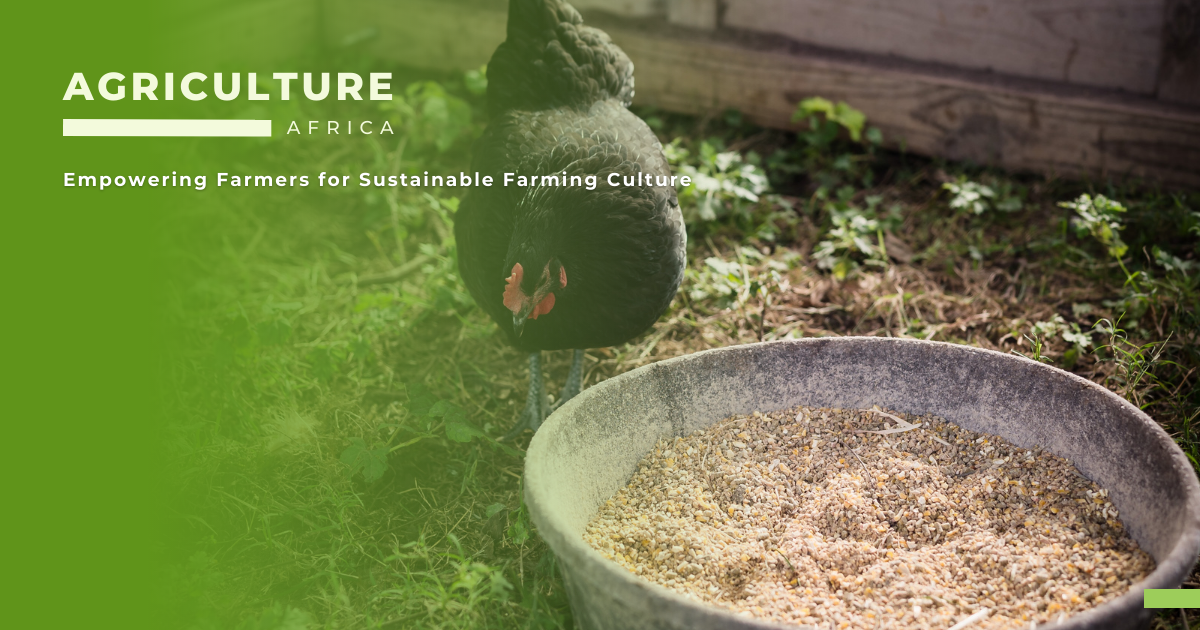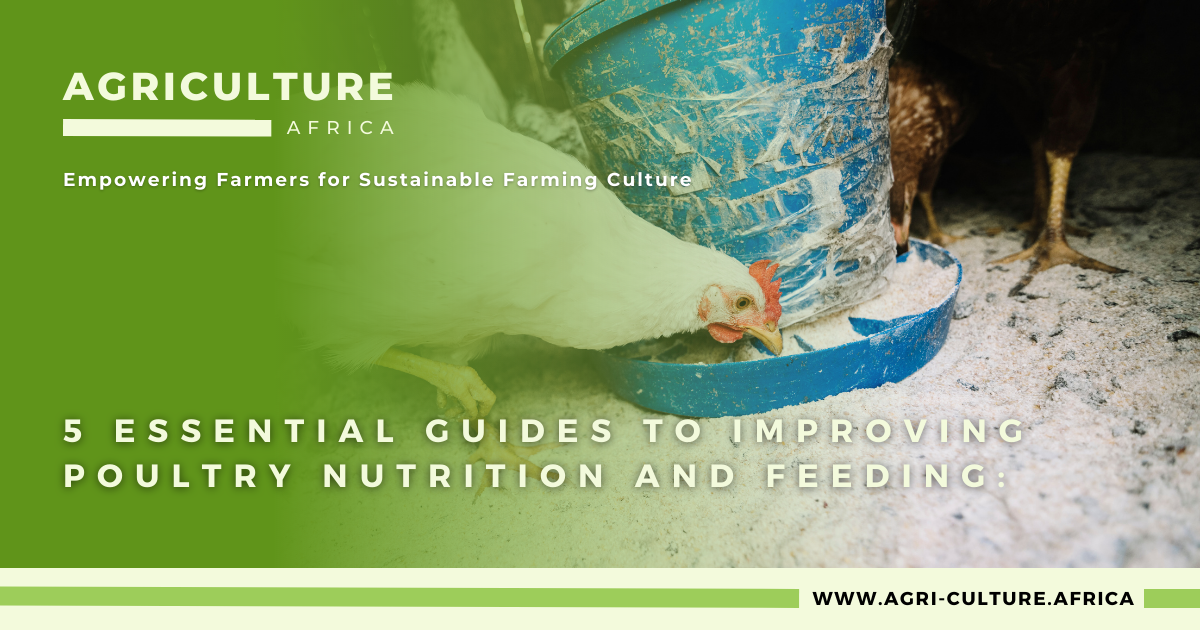Poultry Nutrition and Feeding: Meeting the Nutritional Needs of Birds for Optimal Health and Productivity
Poultry nutrition is an important part of poultry production. Proper nutrition is critical for bird development, health, and productivity. We shall explore the nutritional needs of poultry in this article, including the many types of feed, feed additives, and feeding methods used in poultry production. We will also investigate the role of nutrition in avian health and productivity.
Poultry Nutrition Requirements
Poultry have different nutritional needs depending on their age, breed, and purpose. Protein, carbohydrates, fats, vitamins, minerals, and water are the most important nutrients for poultry.
- Protein is an essential nutrient for the growth and development of poultry. Poultry require a lot of protein in their diet to help with muscle development, feather growth, and egg production. The ideal protein level varies according to the bird’s age and purpose. Broiler chickens, for example, require more protein than laying hens.
- Carbohydrates provide energy to poultry. They are necessary for body temperature regulation, metabolism support, and physical activity fuel. To ensure optimal energy levels, poultry diets should contain a balance of carbohydrates.
- Fats are an important part of poultry diets. They supply essential fatty acids, which aid in cellular function, hormone production, and immune system function. Fats are also a concentrated source of energy that can be used to supplement carbohydrate consumption.
- Vitamins and minerals are important nutrients that contribute to overall poultry health. Vitamins are required in small amounts for a variety of physiological processes. Minerals are needed in greater quantities to support bone development, muscle function, and immune system function.
- Water is an important nutrient that is frequently overlooked in poultry nutrition. Birds require constant access to clean and fresh water to support bodily functions, regulate body temperature, and stay hydrated.
Types of Feed
There are several types of feed used in poultry farming, including:
- Starter feed is a high-protein feed given to chicks aged 0 to 3 weeks. Starter feed is intended to promote rapid growth and development during the first few months of life.
- Grower feed is a lower protein feed that is given to young birds aged 3 to 6 weeks. Grower feed promotes growth and development while lowering the risk of metabolic disorders.
- Finisher feed is a lower protein feed that is fed to birds from the age of six weeks until slaughter. Finisher feed is intended to promote weight gain and improve meat quality.
- Layer feed is a specialised feed given to laying hens. Layer feed contains more calcium to help with eggshell production

Feed Additives
Feed additives are substances that are added to poultry feed in order to improve its nutritional value, palatability, or performance. Among the most common feed additives used in poultry farming are:
- Antibiotics: Antibiotics are used in poultry to prevent and treat bacterial infections. However, due to concerns about antibiotic resistance, their use has become contentious.
- Probiotics are beneficial bacteria that are added to feed to help support gut health and digestion.
- Enzymes: Enzymes are added to feed to improve nutrient digestion and absorption.
- Growth promoters are substances that are added to feed to encourage growth and increase feed efficiency.
Feeding Methods
There are several feeding methods used in poultry farming, including:
- Ad libitum feeding is the practise of giving birds unlimited access to food. This technique is widely used in free-range and organic poultry farming systems.
- Restricted feeding is the practise of limiting the amount of feed given to birds. This method is used to control feed intake and reduce the risk of metabolic disorders in conventional poultry farming systems.
- Precision feeding entails providing birds with a specific amount and type of feed based on their individual nutritional needs. This method makes use of technology such as automatic feeders to ensure that birds get the right amount of food.

Impact of Poultry Nutrition on Health and Productivity
Proper nutrition is critical for poultry health and productivity. A well-balanced diet that meets the nutritional needs of birds can aid in the prevention of metabolic disorders, the improvement of immune function, and the promotion of growth and development.
Nutritional deficiencies or imbalances can cause a number of health issues, such as stunted growth, weakened immune systems, and decreased egg production. Overeating can also lead to health issues such as obesity and metabolic disorders such as fatty liver disease.
Summary
Poultry nutrition is an important part of poultry farming. Proper nutrition is critical for bird growth, health, and productivity. Poultry require a well-balanced diet that meets their unique nutritional needs. To meet the nutritional needs of birds, various types of feed, feed additives, and feeding methods can be used. Proper nutrition and feeding practices can help keep your birds healthy and productive, resulting in a profitable poultry farming operation.
To summarise, it is critical for poultry farmers to understand their birds’ nutritional needs in order to ensure optimal health and productivity. Providing a balanced diet that meets the specific nutritional needs of the birds, using appropriate feed additives, and implementing proper feeding practices will all help to keep your birds healthy and productive.
Additional Resources
- “Poultry Feeds and Nutrition“. The Poultry Site.
- “Feed Additives for Poultry”. Merck Veterinary Manual.
- “Feeding Management”. Aviagen.
- “Nutrition and Feeding for Sustainable Poultry Production in Developing Countries“. FAO.
- “Poultry Nutrition”. University of Arkansas Cooperative Extension Service.
- for more on Visit


